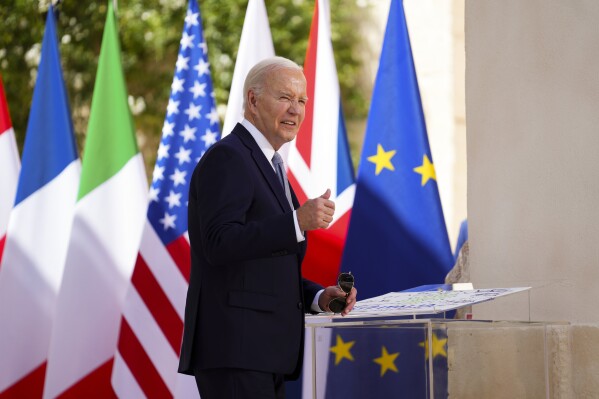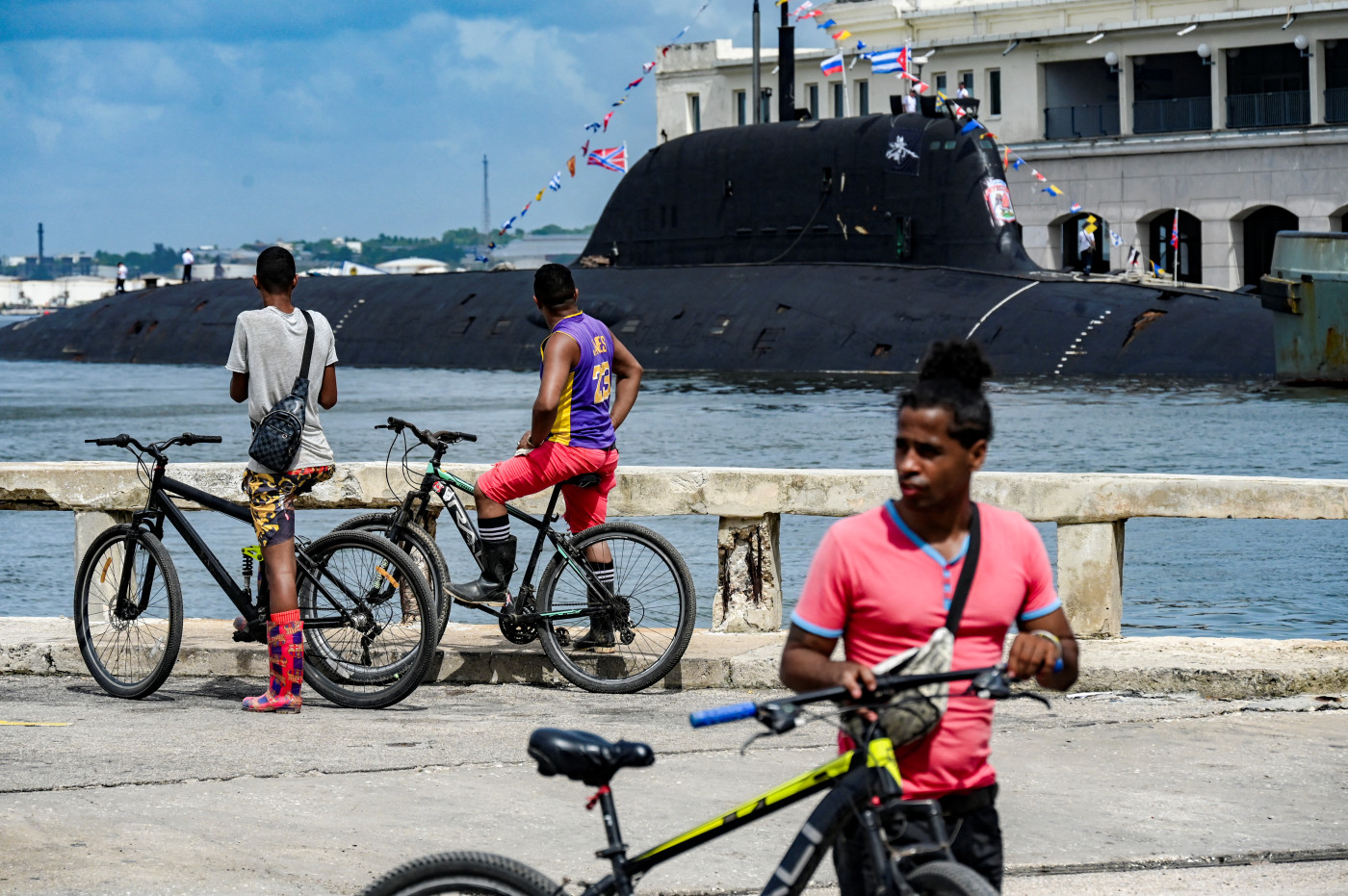The Gaping Hole in Biden's Sanctions on Putin's Energy Empire
The United States has expanded its sanctions on Moscow but Gazprombank, one of the main channels for payments for Russia's main exports of oil and gas, remains plugged into the global financial system.
The Biden administration announced on Wednesday its latest suite of measures designed to curb Vladimir Putin's ability to fund his invasion which started on February 24, 2022.
These include targeting foreign financial institutions supporting Moscow's war effort, restricting Russia's access to IT, and targeting 300 individuals and entities that enable Russia to evade sanctions. At the start of the war, Gazprombank was among Russian entities sanctioned by the U.S., stopping it from raising money through the U.S. market, but it was only a partial punishment.
In March 2022, the European Commission kicked seven sanctioned Russian banks out of the Society for Worldwide Interbank Financial Telecommunication (SWIFT) messaging system, and another three joined them, but none of these included Gazprombank.
Andriy Yermak, chief of staff to Ukrainian President Volodymyr Zelensky, told NBC in July 2022 that the U.S. and the European Union had not done enough to curb Gazprombank, which he said is helping to bankroll Putin's aggression.
As the Atlantic Council sanctions database noted, Gazprombank continues to oversee transactions in dollars and euros and is part of SWIFT.
"Gazprom has been the target of limited sanctions, but they've not been subject to the same level of sanctions as VTB Bank, Sberbank and basically every other major Russian bank," Darshak Dholakia, a partner at the international law firm Dechert and an expert on national security and international trade laws, told Newsweek.
"It's clearly an omission, but I think it's a very knowing one. There has always been concern that sanctioning Gazprom bank would impair the natural gas imports into Europe," he said. "I think that's why it's been largely avoided so far."
Gazprombank has not been completely unscathed by the war. In March 2022, United Kingdom sanctions locked the bank out of resources held in Britain and stopped British firms from doing business with it.
On January 25, 2023, the American correspondent banks of Gazprombank terminated their accounts, meaning that it can no longer make transfers in U.S. dollars.
Newsweek reached out to the U.S. Treasury and Gazprombank for comment.
Dholakia noted that since February 2022, when U.S. sanctions were imposed, the U.S. Office of Foreign Assets Control has issued a general license authorizing certain activities that would otherwise be prohibited, including all energy transactions, even if those transactions involve the sanctioned Russian banks.
"It's a bit odd because it would be easy enough to add Gazprombank to the SDN (Specially Designated Nationals and Blocked Persons) list and just and then amend this general license so Gazprombank is included within the scope of the authorization and not impede the flow of natural gas to Europe at all," he said.
Nearly two and a half years from the start of the war, Europe is much less reliant on Russian natural gas after Gazprom cut supplies to its most lucrative market in what was seen as a move by Putin to pressure Kyiv's allies.
Several EU countries, including Austria and Slovakia, are still heavily reliant on Russian gas, but in September 2023, Poland, Ireland, and the three Baltic states called on the European Union to expel Gazprombank from the SWIFT system.
"If the EU were to sanction Gazprombank, that significantly waters down the reasoning for why the U.S. hasn't," Dholakia said. "There's no reason why the U.S. wouldn't follow suit."
Disclaimer: The copyright of this article belongs to the original author. Reposting this article is solely for the purpose of information dissemination and does not constitute any investment advice. If there is any infringement, please contact us immediately. We will make corrections or deletions as necessary. Thank you.

